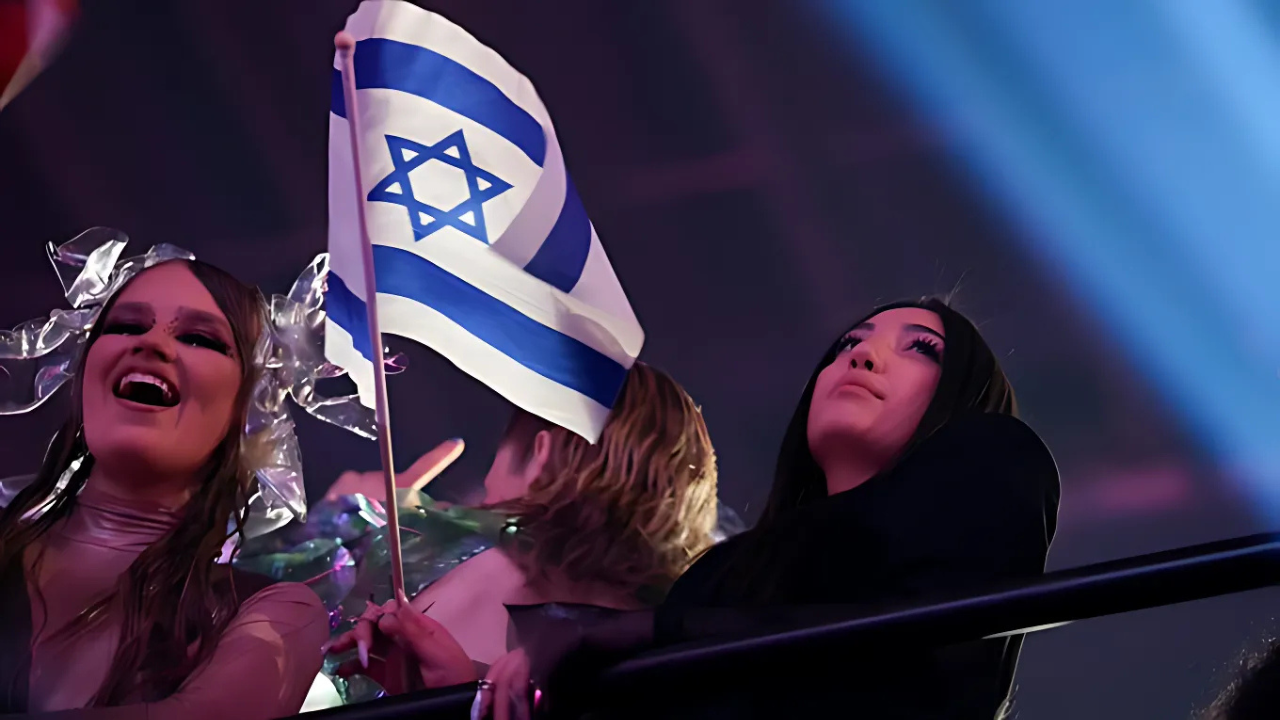
Post by : Naveen Mittal
Ireland’s national broadcaster, RTE, has said that Ireland might not take part in next year’s Eurovision Song Contest if Israel is allowed to participate. The broadcaster explained that this decision is based on moral reasons because of the ongoing war in Gaza, where many people have died and suffered.
The Eurovision Song Contest is a popular music competition held every year, where countries from Europe and beyond send singers and performers to compete for the top prize. Israel has been participating for a long time because it is a member of the European Broadcasting Union (EBU), the organization that manages Eurovision. But now, Ireland is questioning whether it is right to take part in the contest if Israel is allowed to join.
RTE said that it would be “unconscionable” or wrong for Ireland to take part in the contest while Israel is still attacking Gaza. According to local health reports from Gaza, more than 64,000 people, including civilians, have been killed in the conflict.
The war began on October 7, 2023, when Hamas, a group in Gaza, launched attacks on Israel. About 1,200 people in Israel were killed and 251 were taken hostage, according to Israeli sources. Israel responded with military action, and the situation has led to heavy casualties in Gaza.
During a meeting in July, several members of the European Broadcasting Union raised concerns about Israel’s participation in Eurovision. Many countries feel uneasy because the war has caused a humanitarian crisis and widespread suffering.
RTE explained that it is not only worried about the loss of lives but also about other issues. They are concerned about the deaths of journalists in Gaza, as some journalists have been targeted during the conflict. Additionally, journalists from outside have been denied access to the area, making it harder to report on what is happening. The plight of hostages is another reason for concern.
The EBU understands that many countries and broadcasters are troubled by the conflict. Martin Green, the EBU director, said that they are still talking to all members to understand their views and decide how to handle the situation.
Each broadcaster has the right to choose whether or not to participate in Eurovision. The final decision will be made by mid-December when each country must confirm its participation for the event, which will take place in Vienna in 2026.
RTE emphasized that Ireland’s participation would send the wrong message if it went ahead while thousands of people are losing their lives in Gaza. They said it would be “unconscionable” to join the contest without considering the human cost of the war.
RTE also spoke about their worries for journalists being killed and the difficulties in reporting from Gaza. Israel, however, denies targeting journalists and claims it is protecting its territory.
Israel has been defending its actions by saying that it is fighting terrorists. They argue that Hamas launched missiles and drone attacks toward Israeli cities, and Israel responded in self-defense.
Israeli representatives have said that the strikes are necessary to protect their citizens and prevent further attacks. They deny that they have intentionally targeted civilians or journalists.
Ireland’s final decision depends on what the EBU decides about Israel’s participation. RTE said they will wait until the EBU makes its decision before confirming whether Ireland will compete.
If Israel is allowed to participate, Ireland might pull out of the competition. This would be a major change, as Ireland has been part of Eurovision since 1965 and has won the contest seven times, a record only matched by Sweden.
The Eurovision Song Contest is more than just a music event. It brings together countries from all over to celebrate talent and creativity. But it is also a platform where countries express their values and beliefs.
By choosing not to participate, Ireland is making a statement about human rights, war, and peace. It shows that countries are thinking beyond entertainment and considering the impact of conflicts on innocent lives.
This situation also reflects how the arts, politics, and humanitarian issues are connected. Events like Eurovision are not just about singing—they can influence international opinions and bring attention to global problems.
For fans of Eurovision, this news is disappointing because it may mean that some of their favorite countries might not participate. Ireland is one of the most successful countries in Eurovision’s history, and its absence would be felt by many.
At the same time, some people believe it is important for countries to stand by their principles and speak out against violence and injustice.










Curry Powers Warriors to Nail-Biting 109-108 Victory Against Spurs
Stephen Curry's 49 points propel the Warriors to a dramatic 109-108 NBA Cup triumph over the Spurs,

India Advances to Semi-Finals After Thrashing USA in Women’s Blind T20 World Cup
India secured a dominant ten-wicket victory over the USA, advancing to the semi-finals in the Women’

South Africa's Early Advantage as India Struggles on Day Two
On Day Two, India reached 138-4 as South Africa took three early wickets, complicating matters with

Kenta Nishimoto Defeats Lakshya Sen in Japan Masters Semifinal
Lakshya Sen's journey in the Japan Masters ends after losing to Kenta Nishimoto 19-21, 21-14, 12-21

Kenta Nishimoto Defeats Lakshya Sen in Japan Masters Semifinals
Lakshya Sen's run at the Japan Masters concludes with a loss to Kenta Nishimoto in the semifinals, 1

Major IPL Trade: Jadeja Joins Royals as CSK Signs Samson
In a significant IPL trade, CSK has acquired Sanju Samson from Rajasthan Royals in exchange for Ravi